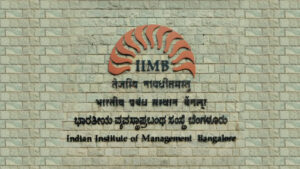Regulation Guidelines for Coaching Centres Issued by Central Authorities
3 min read
In response to the burgeoning growth of unregulated private coaching centre in India, the Centre has taken a significant step by formulating model guidelines. This blog post aims to provide an in-depth exploration of the proposed Guidelines for the Regulation of Coaching Centres in 2024 and their potential impact on the coaching industry.
Table of Contents
Key Guidelines for Coaching Centre Regulation
1. Age Restrictions and Qualification of Tutors
The guidelines propose that students below 16 years of age should not be enrolled in coaching centre. Additionally, tutors with qualifications below graduation are not to be allowed to teach in these institutes.
2. Restricting Misleading Promises
To address the issue of misleading promises, coaching centre are prohibited from making claims about the quality of coaching, facilities, or results procured by attending their classes.
3. Penalties for Malpractices
To give teeth to the policy, the Centre suggests penalizing coaching centre for charging exorbitant fees, causing undue stress leading to student suicides, and other malpractices. Penalties may include fines up to 1 lakh or cancellation of registration.
Rationale Behind the Guidelines
The document supporting the guidelines highlights the need for regulation due to instances of exorbitant fees, stress-induced suicides, and other malpractices adopted by unregulated coaching centre. The absence of a policy or regulation has allowed the unbridled growth of such centres, leading to serious consequences.
Registration and Monitoring
To ensure proper monitoring, the Centre proposes the registration of new and existing coaching centre within three months of the guidelines coming into effect. The state government is tasked with monitoring the activities of coaching centre and ensuring compliance with the eligibility criteria.
Focus on Mental Well-being
Recognizing the mental toll on students, especially those preparing for competitive exams, the guidelines advocate for a weekly off, suitably spaced-out curriculum, and limiting classes to no more than five hours a day.
Addressing Student Suicides and Mental Health
The guidelines come in the wake of a concerning rise in student suicides, particularly in Kota, Rajasthan. To address this issue, coaching centre are urged to prioritize mental well-being and emotional bonding, and offer counselling from psychologists.
Transparency and Accountability
Coaching centre are required to maintain a website with updated details, including tutor qualifications, course details, hostel facilities, and fees. An easy exit policy and fee refund details must also be clearly outlined on the website.
Grievance Redressal and Complaint Mechanism
The guidelines provide a provision for students, parents, or tutors to file complaints against the coaching centre. The complaints are to be addressed by a competent authority within thirty days.
Regulation and Student Welfare
The guidelines for coaching centre aim to strike a balance between regulation and student welfare. By addressing issues such as misleading promises, age restrictions, and penalties for malpractices, the guidelines seek to create a more accountable and student-centric coaching environment. It remains to be seen how these guidelines will be implemented and the impact they will have on the coaching industry in India.





